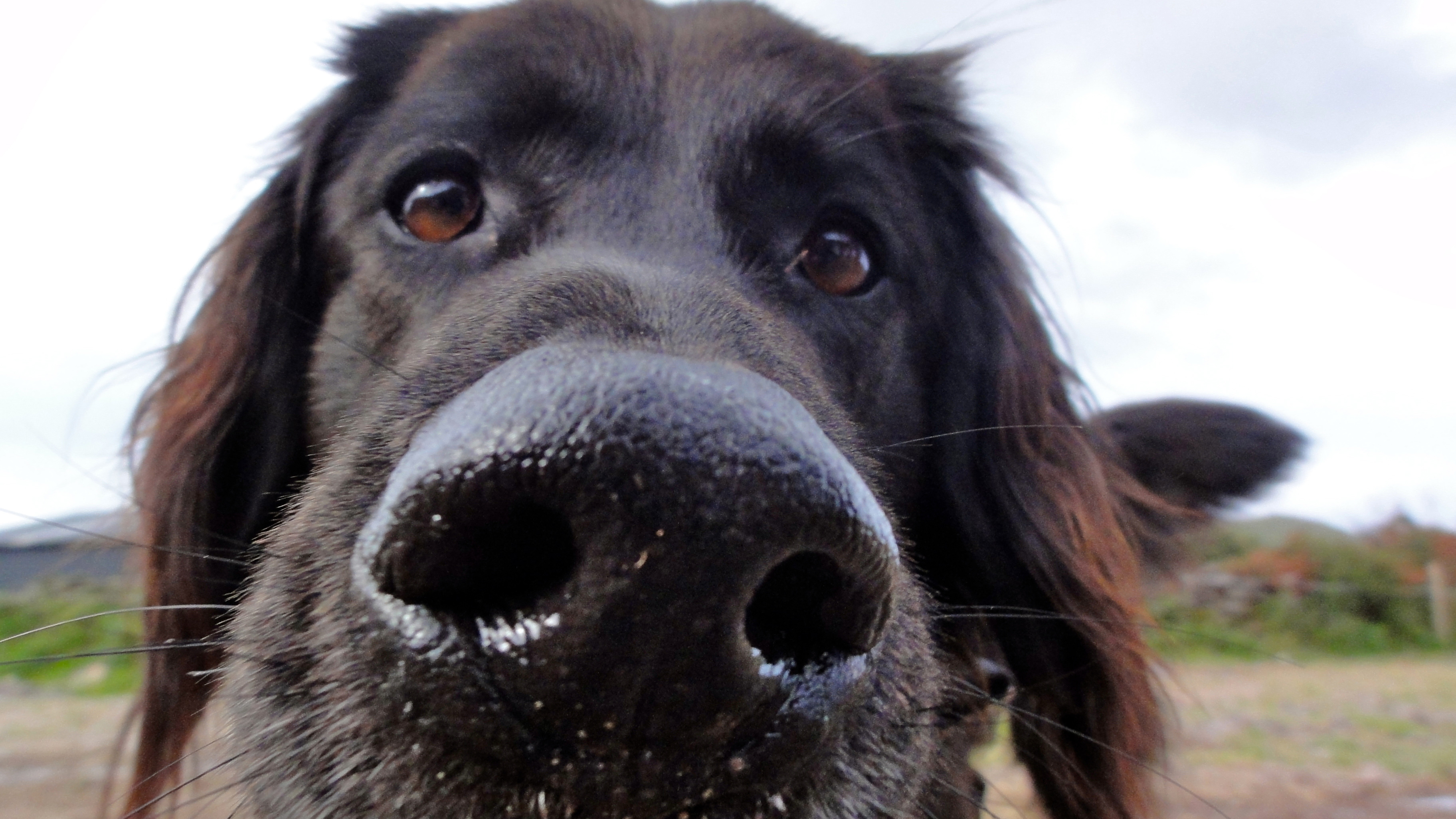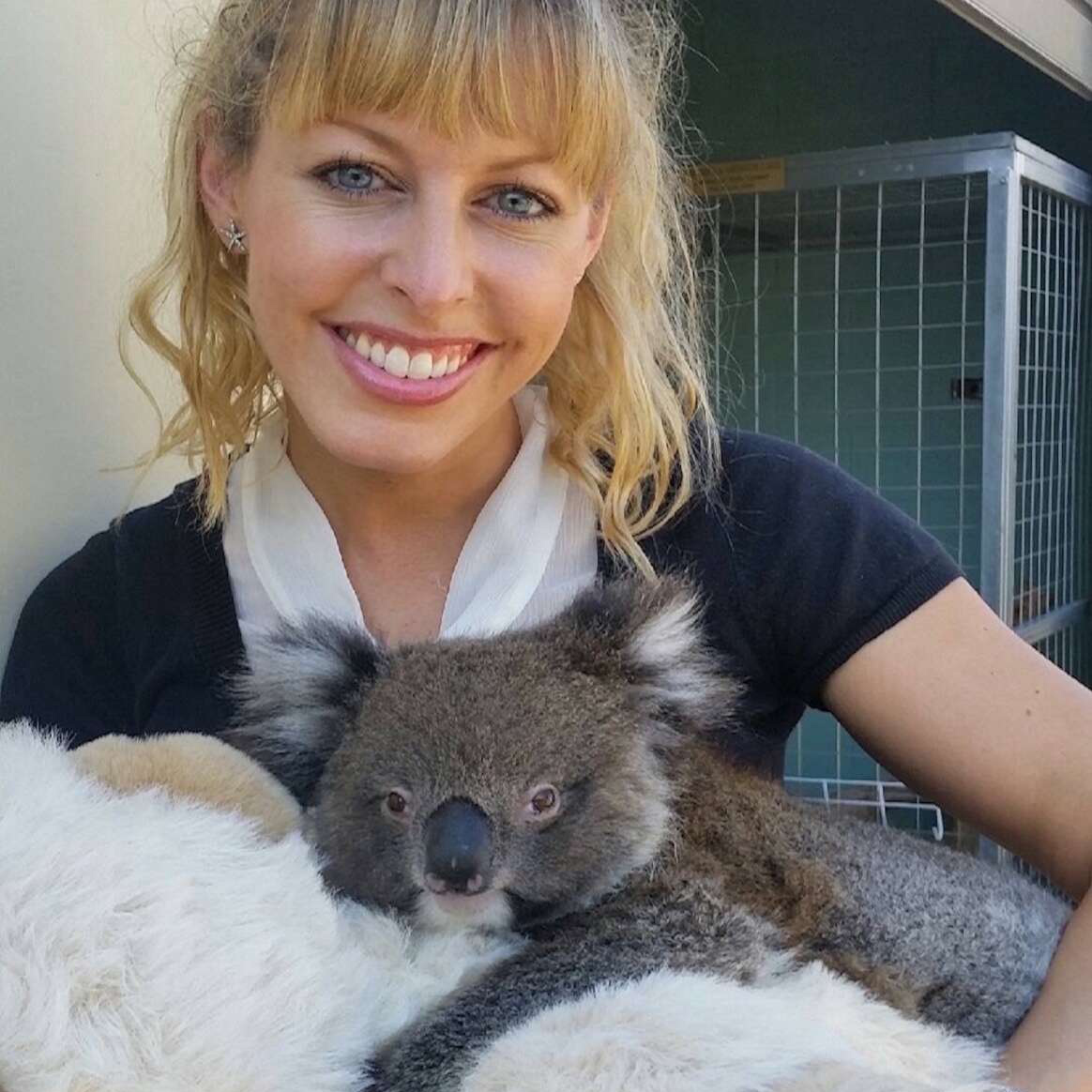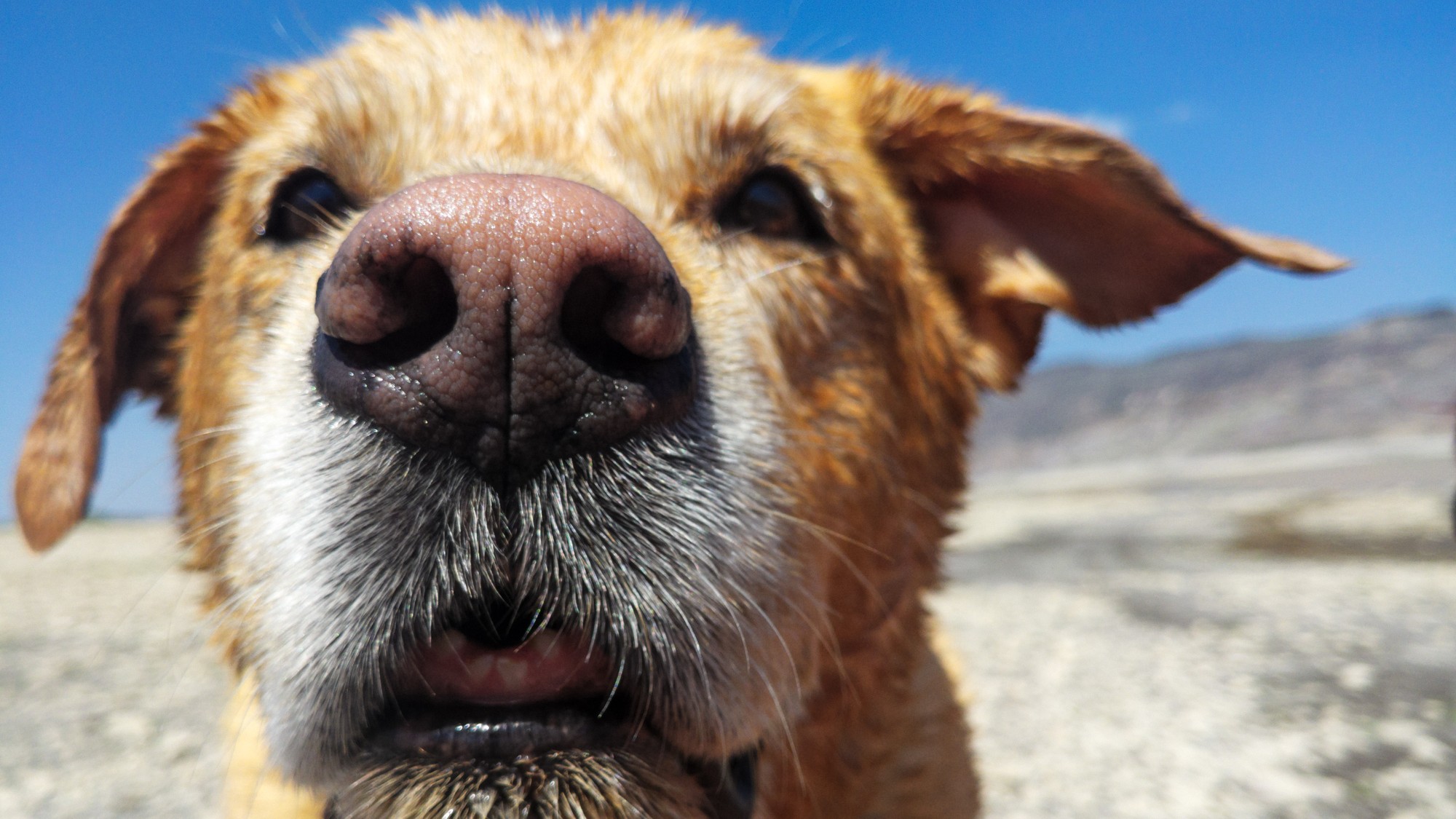What causes a wet nose in dogs?
Wondering what causes a wet nose in dogs? We’ve consulted expert veterinarians to find the answer

Get the best advice, tips and top tech for your beloved Pets
You are now subscribed
Your newsletter sign-up was successful
If your dog has given you a friendly bump with their nose, you might have wondered what causes a wet nose in dogs. Considering that stuffy noses in a human often will mean that they’re suffering from an illness or allergy, you might even wonder if a wet nose in dogs means that there’s something wrong. Alternatively, if your dog’s nose has gone dry, could this mean that your dog is feeling unwell?
If it's allergy related then you might be considering finding the best dog food for allergies for your pup. But if you're not sure and want to find out more potential causes, we can help.
To find out why dogs have wet noses, we consulted with two veterinary experts – Jo Woodnutt and Nicole Savageau. They gave us their expert insight on the causes behind wet noses and what to do if you think your dog’s nose is either too wet or too dry.

After graduating as a veterinarian from the University of Nottingham, Dr Joanna Woodnutt went on to practice companion animal medicine in the Midlands, UK. Dr Woodnutt is specifically interested in consulting and helping her clients understand their pets better, whether it’s around medical problems such as dermatology, behavior, and nutrition.

After obtaining a Bachelor of Science in Animal Science from Cornell University in 2004, Dr. Savageau went on to the University of Pennsylvania for veterinary school to graduate with her VMD in 2009. After graduation she moved to Australia and lived and worked there for six years on species ranging from dogs and cats to koalas and lizards. She moved back to the US in 2016 and has been happily living in Austin for five years, joining The Vets of Austin one year ago.
What causes a wet nose in dogs?
If you have a dog, you may have previously heard the often touted refrain that if a dog has a dry nose, then they’re sick. However, this is actually a bit of an old wives' tale. In fact, it’s perfectly normal for a dog to occasionally have a dry nose – especially if they’ve been sleeping. Wondering can dogs get sick from humans?. The short answer is yes but the symptoms don't always affect your dog. For the long answer, you can read this article in full after learning about wet noses on dogs.
So, why do dogs have wet noses? Well, there are a few potential reasons. Nicole says, “A wet nose in dogs is caused by the secretion of mucus in the nasal passages. Dogs have a special gland located at the base of their nose that produces this mucus, which helps to capture scent particles in the air and enhance their sense of smell.” Considering how strong a dog’s sense of smell is compared to a human, being able to more easily capture scent particles makes sense. Jo agrees, adding that “Scents can get trapped on the nose by this fluid and then transferred when they lick their noses.”
However, this mucus isn’t solely to benefit a dog’s sense of smell. Jo says that, “It’s likely this is used as part of your dog’s cooling mechanism.” Nicole agrees, adding that “In fact, dogs only sweat from two areas on their bodies, their noses and their foot pads so we know that a wet nose could be a form of temperature regulation.” She goes on to say that, “The wetness of a dog's nose can vary depending on factors such as humidity and temperature, but it is generally considered a sign of good health in dogs. However, a persistently dry nose could be a sign of an underlying health issue and should be evaluated by a veterinarian.”
It’s not just this mucus that makes your dog’s nose wet – most dogs will lick their nose multiple times throughout the day. According to this article from VCA Animal Hospitals, “Dogs lick their noses to keep them clean, since canine noses get dirty as dogs smell everything. Whether it’s food from the bowl, pollen from a flower, or dust under the couch, dog noses stay dirty and need lots of licking to get clean again.”
Get the best advice, tips and top tech for your beloved Pets
Should you worry if your dog’s nose isn’t wet?

As Nicole says, if your dog’s nose is always dry, then it might be worth taking your dog in for a vet visit. However, what if their nose is intermittently wet and dry? Jo says, “Some dogs have wetter noses than others, so it’s more about what’s normal for your individual pooch. It can also be normal for your dog’s nose not to be wet all the time, and many dogs will have a drier nose when they’re sleeping.”
Nicole adds that, “While a wet nose is generally a sign of a healthy dog, a dry nose does not always indicate illness. Some dogs may naturally have drier noses, especially as they age. However, if the dryness is accompanied by other symptoms, such as lethargy, loss of appetite, or coughing, it may be a sign of an underlying health issue, and a veterinarian should be consulted. Additionally, if a dog's nose is cracked or bleeding, it is important to seek veterinary care, as this could be a sign of an infection or other serious condition.”
As a general rule of thumb, if you’re ever worried or unsure about your dog’s health, it’s never a bad idea to take them in to see their vet. However, if your dog’s nose is only intermittently dry, it otherwise looks healthy and there are no other symptoms or strange behaviours, then you can rest assured that your dog’s nose is likely completely normal.
Can a dog’s nose be too wet?
Now that we’ve established that it’s perfectly normal for your dog’s nose to be both wet and dry, is there such a thing as your dog’s nose being too wet? We asked Jo for her take. She said, “Discharge from your dog’s nose may cause it to appear too wet. However, if you look closely this discharge usually runs out of the nostrils and downwards. It’s only when your dog licks their nose that this can be spread around, causing the nose to be wetter than usual.”
While this should reassure any worried pet parents out there, it’s once again worth mentioning that a vet visit can also help alleviate your worries if you’re still unsure. Jo adds, “Like a dry nose, a wet nose isn’t anything to worry about necessarily, but if you notice a change you should monitor your dog for other symptoms before taking them to the vet.”
One symptom that should prompt a quick call to the vets is if the discharge from your dog’s nose changes colour – if it becomes green or yellowish, or has a tinge of blood, then this could indicate a potential respiratory infection or potentially a foreign body in the nasal passage.
If you're looking for some great training tips, check out our guides to three of the most common loose leash walking mistakes (and how to fix them) and three reasons why your dog’s recall isn’t reliable (and what you can do about it).
Louise Carey is a freelance writer and the Editor of sister website Top Ten Reviews. She has been working in publishing for seven years, contributing to publications including The Independent, TechRadar, Digital Camera World and more. As the proud pet parent of a reactive border collie with a food allergy, it’s been necessary for Louise to explore a variety of fun and exciting ways to enrich an energetic dog that can’t always go on walks. She’s passionate about sharing the information she’s learned to help other pet owners as well.

